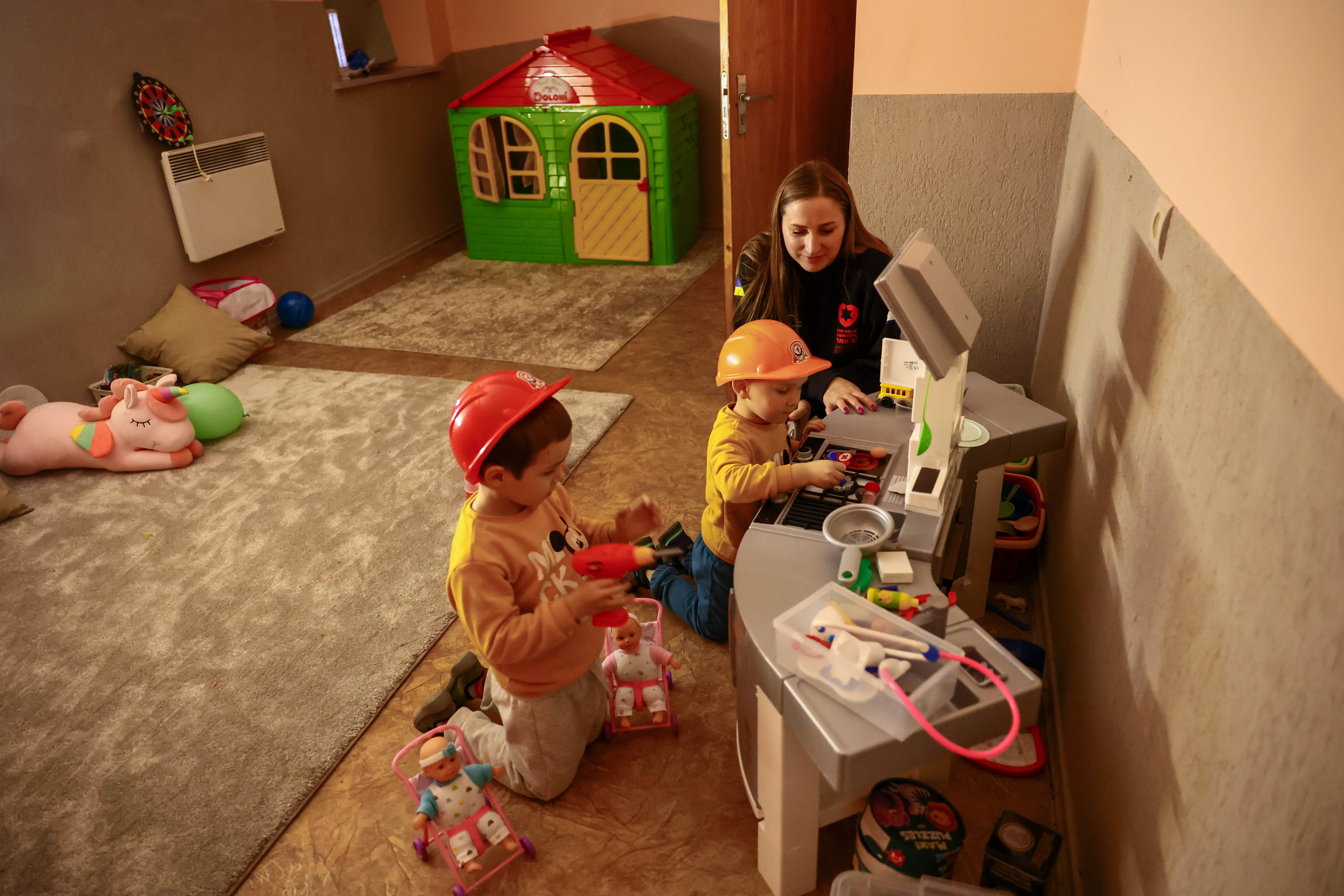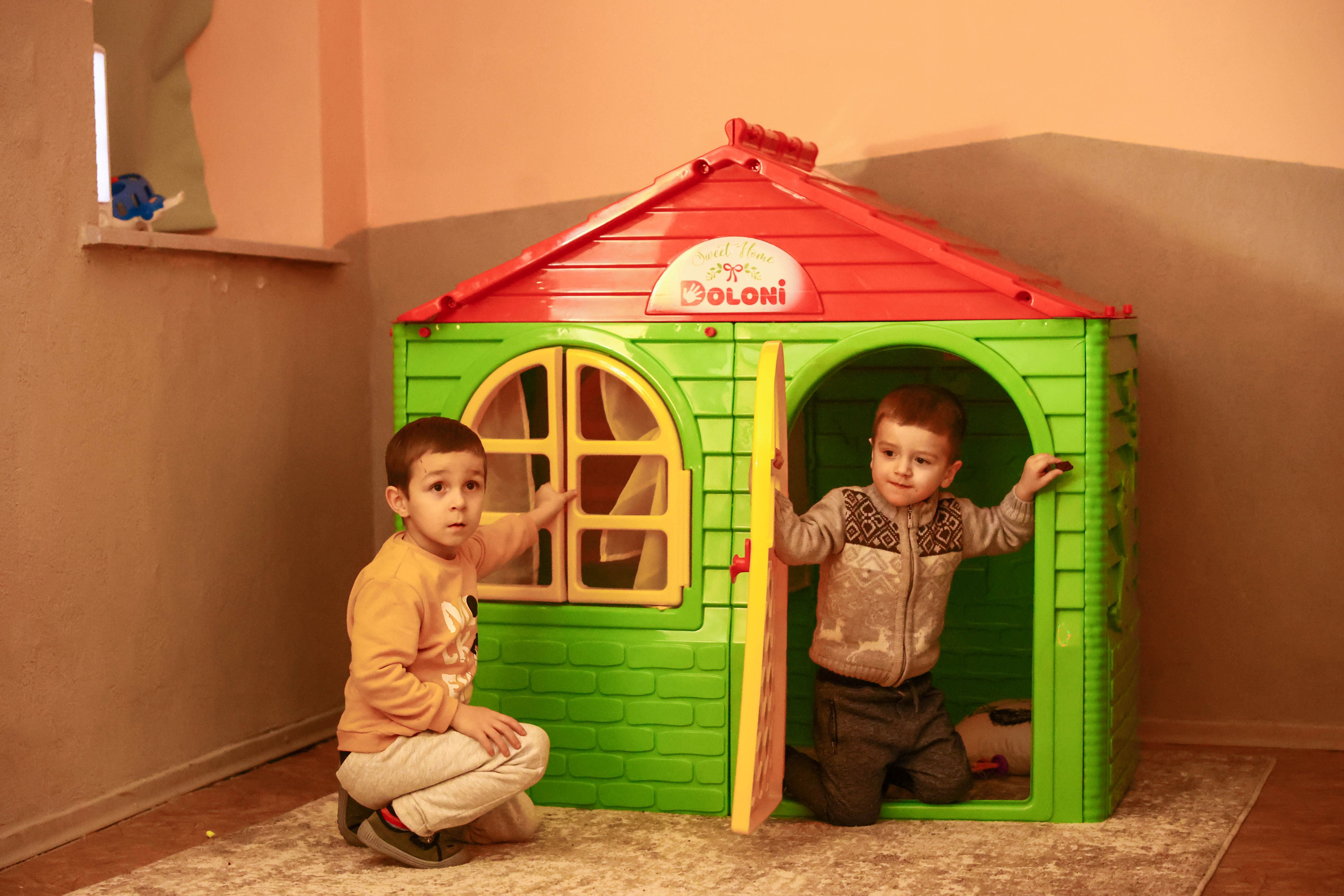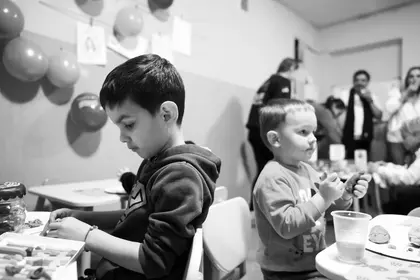Millions of Ukrainians have been forced to flee their homes since the beginning of Russia’s unprovoked aggression against their nation. Among those many millions are a vast number of anguished children, for whom life and their childhoods will never be the same.
In the dark early days of the war, a team of psychologists and early childhood experts arrived in Lviv to organize therapy for children in order to help them deal with the trauma they were experiencing.
- Read the newest Ukraine news stories published today.
- Get the newest Ukraine news reports as of today.
JOIN US ON TELEGRAM
Follow our coverage of the war on the @Kyivpost_official.
Ran Cohen Harounoff, a co-Founder of Israeli-based charity Early Starters International (ESI), said that his organization had already set up schools across Eastern Europe, but it became apparent that it was necessary to also open centers “in Lviv and eventually in Kharkiv,” as kids in Ukraine needed “safe space” where they could feel secure and without fear.
The immense insecurity that comes with the real threat of physical violence caused by Russia is not something easy for adolescent minds to process. Often it is compounded by economic instability due to their parents’ loss of work and the sense of no clear future ahead, especially if family members remain trapped in the conflict zone or have been drafted into the military.
Dr. Kenneth Dekleva, a psychiatrist practicing in the United States, who used to work with refugee children, confirms this: “Such traumatic exposure can cause post-traumatic stress disorder (PTSD) – worse if untreated.”

What if Russia Wins?
This echoes what the War Childhood Museum, which focuses on “childhoods that have been affected by war,” indicates on their website. There are two major types of traumatic events that children can face, according to the museum: “Type I (sudden traumatic event) and type II (protracted exposure to adverse events resulting in dysfunctional coping mechanisms). As a result, [children] suffer from conditions such as anxiety disorders, PTSD, depression, dissociative disorders (disengagement in the external world, depersonalization, derealization, numbing, catatonia), behavioral disorders (especially aggression, asocial and violent criminal behavior), and alcohol and substance abuse, more than their counterparts – in countries not torn by war.”
Dr. Dekleva cautions that the “current war in Ukraine – because of its genocidal nature, imperative, and brutal tactics on the part of Russia – has the risk of creating an entire generation of traumatized Ukrainian citizens and refugees, including children.”
Therapists, having learned from the war experiences and the “studies conducted in the Middle East, Africa, Kosovo, and Bosnia,” says Dekleva, have a strong grasp of how to best treat children suffering from war-time trauma.
ESI, which is generally staffed by women with the necessary educational background and work experience, has opened 18 early childhood safe spaces across Europe, including seven in Moldova, seven in Israel, two in Prague, and one in both Krakow and Lviv, and now has 45 staff members – many of whom are themselves Ukrainian mothers.

While children learn how to regulate and deal with the influx of emotions that come from being made a war refugee, the parents are offered services that could help them to resettle, including language services and legal advice.
Types of instruction include “health education about behavior change in young children”; providing psychological safe spaces; and on offering a curriculum based on the “6 Cs” (creativity, curiosity, caring, coordination, communication, coping with change); methodologies for teachers that have perhaps never dealt with children in such distress; and also giving physically and mentally exhausted parents a break.
Childhood development, typically defined as infancy until the onset of puberty (around 12 years old) has a profound effect on how a person’s later life unfolds. If deep trauma, such as being a war refugee, is not treated, children can become deeply scarred adults for the rest of their lives, explained Ran Cohen Harounoff. This is why ESI views their work as something that not only helps children today, but will leave a lasting impact in society for decades into the future.
To date, over 3,500 Ukrainian children – or about 400 per day – have been able to take part in the services offered and thousands more families have benefited from other assistance that the organization offers.
Yulia Kromchenko, who also works for the organization, said: “We try to create a home for them, a place where they can learn and grow in peace. At the same time, the parents who have cared non-stop for these children are physically and mentally exhausted, so a place for children to learn and play is also a huge relief for them. We are in this for the long-haul.”
Today, many children complain that they miss their fathers who were unable to accompany them outside of Ukraine – many of whom are fighting for Ukraine’s freedom on the front. The total uncertainty is something that adults worry about – but for children who have no way to justify or understand what is happening, the effects could be even worse.

Cohen Harounoff agrees, it will not be easy. But he says that ESI intends to be in this “for the long haul” and they plan to “keep working, no matter the conditions and no matter what happens, to help displaced Ukrainian kids and their families.”
You can also highlight the text and press Ctrl + Enter






